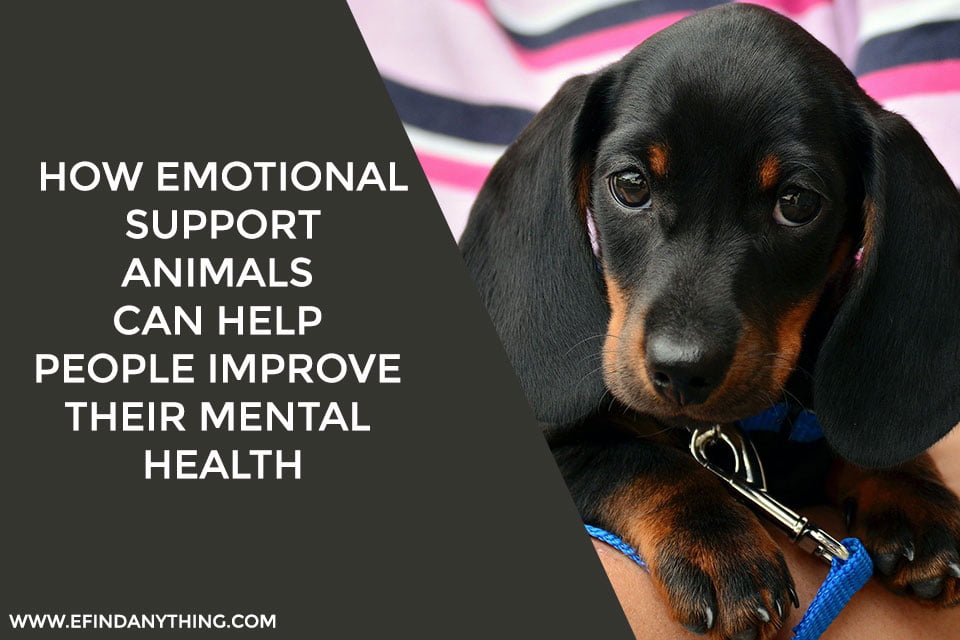Who doesn’t love to cuddle with a cute puppy or cat? Nowadays, pets are more than just animals people keep around the house, especially in urban areas. And it’s not just about cute cats and dogs – animals of any kind can become our friends and companions if both sides agree to the arrangement.
Plus, there is scientific evidence that having a pet around the house helps improve mental health and physical health. Still, there is a bit of difference between a pet and an emotional support animal (ESA). While it’s not a service animal (people always confuse these two), an ESA still needs certification but they are not trained to do activities. Their only job is to provide a therapeutic effect to the owner by being their companion. Also, these animals can provide comfort for people suffering from mental health and psychiatric problems.
Table of Contents
How to Get an Emotional Support Animal?
Unlike service animals, an ESA can be any type of animal that can provide its owner with comfort and peace of mind. However, in order to be officially recognized as an ESA, the animal needs to be certified by a mental health professional. The professional has to write up documentation specifying the type of support and comfort the animal provides for the owner who is suffering from a mental illness. If you want to know more about getting a Legitimate ESA Letter, go to CertaPet.com.
Why Do People Need an ESA?
An ESA is not just a pet. It is a companion that’s necessary for the mental well-being of their owner which is why a certified ESA can (and should) accompany their owner wherever they go. An ESA can live in a building that doesn’t allow pets and can travel in the cabin of an airplane for free.
But why do some people need their help? How does an ESA improve the life of its owner and do medical professionals recommend them?
Mental health professionals learned that patients who suffer from mental illnesses such as anxiety, PTSD, depression, or some types of phobias respond better to treatment when they have an animal companion. These animals help reduce the stress created by the illness and reduce the feeling of loneliness many patients feel.
It’s Scientifically Proven
There are several studies that show animals help humans produce neurotransmitters that make us happy (like dopamine). Now, the studies talk mostly about dogs, but other animals can have the same effect on a loving owner. Every pet owner knows that humans and animals can bond in a special way that produces feelings of love and connection. Plus, humans are wired to share their love and nurture other beings. That’s why when you look into your dog’s eyes (especially if you got them as a puppy) you feel loved and happy.
Of course, there are other amazing benefits to having a dog, but not everyone gets attached to puppy eyes and wet noses. That’s why the ESA program includes all sorts of animals like birds, reptiles, cats, and more.
Why are ESAs Special?
Some people have a hard time understanding how animals can help people with mental illness. That’s because the animal is not the treatment; their role is to help the person heal while taking their recommended treatment. ESAs are amazing friends that keep the person grounded in reality and comfort their fears when the emotions are running rampant.
People who have a terrible fear of flying can put themselves through the experience if they have their ESA next to them. This way, they can focus on the animal and feel comforted by their presence. There is clear research showing that humans can calm down by petting an animal they love.
There is also research showing animals are healing for people who feel lonely. That’s because pet owners have a real relationship with their animals and they feel another soul close to them. The results are quite impressive as people who take an ESA have better immune and cardiovascular functioning.
Overall, an emotional support animal can serve as an anchor for the owner who feels overwhelmed by the realities of daily life. Also, it’s easy to understand why so many people decided to adopt a furry friend during COVID times – the time spent in lockdown is better when you can share the experience with someone.





